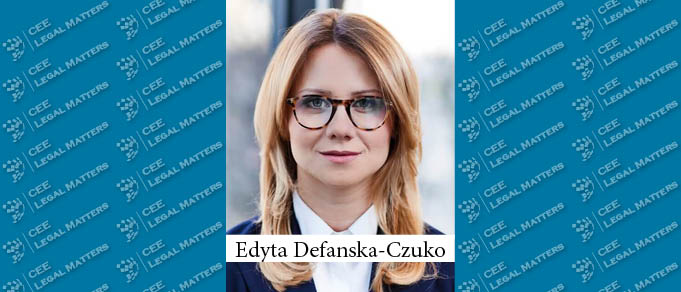In pursuit of solutions to the problem of unemployment and the flexibility of the labor market, Lithuania has endorsed a new Labor Code, which will come into force on July 1, 2017. The main objectives of the new legislation are to adapt the country’s laws to reflect progress in the market and to allow more liberal labor relations between employers and employees. The changes are intended to facilitate job creation, reduce the unemployment rate, ensure clarity in labor relations, and make the Lithuanian market more attractive to investors.
Important Changes to Polish Labor Law
On January 1, 2017, a number of new provisions in Polish labor law came into force introducing some sig-nificant changes for employers and employees and, to a certain degree, for persons hired on the basis of contracts for work and service contracts.
Electronic Documents in Employment Relations
The development of modern technologies and the growing role of electronic documents in commercial relations influence the employment sphere, among others. Companies increasingly use electronic employment agreements and electronic policies, which increases the efficiency of employment paperwork turnaround. However, the positions of Russian employment law and the courts on electronic employment documentation are not uniform.
Labor Code Changes in Hungary Are Yet to Come
A number of changes to the Labor Code expected to come into force on July 1, 2017, will not do so. These amendments to the Code – which were submitted to the President of the Parliament by the head of the Economic Committee – would primarily have affected work-time scheduling provisions, making the Labor Code more sensitive to the needs of the improving economy and changing labor market. According to Parliament, the amendments would have significantly improved production for businesses over a period of six to seven years.
Greek Labor Sector Stays Mired in High Unemployment Rates as Debt Crisis Goes On
Almost nine years since the onset of the Greek debt crisis, the country’s deep and prolonged recession has led to a substantial decline in ordinary financial activity and has swept away a quarter of Greece’s Gross Domestic Product (GDP), an aftermath usually observed in times of war.
Dispute Resolution in Poland in 2017
As the first half of 2017 draws to an end, dispute resolution in Poland continues to face dynamic changes. This is due to numerous pieces of legislation being implemented as well as certain policy issues of the ruling party. We focus in this article on several trends or changes that our clients are struggling with or which might affect businesses in the foreseeable future.
Temporary Employees to Benefit from Improved Regulations
The Polish Act on Temporary Employees dated July 9, 2003 (Journal of Laws of 2003, No. 166, item 1608, as amended) has been in force since 2004. The Act contains many flaws, however, resulting in the unequal treatment of temporary employees compared to employees hired directly under employment agreements.
Reviewing the Polish Restructuring Law
Almost a year and a half after Poland’s Restructuring Law entered into force, introducing a clear separation between restructuring and bankruptcy, now is a good time to review its affects.
Recent Developments Regarding Polish Anti-Avoidance and Anti-Hybrid Measures: The Fight Against Tax Dodging Gathers Steam
The OECD’s Base Erosion and Profit Shifting (BEPS) Project
A few years ago OECD and G20 Leaders noticed that the international tax landscape had changed dramatically. The financial crisis and aggressive tax planning by multinational enterprises had resulted in significant losses to state budgets, and perceived tax evasion had become part of the political agenda. Consequently, joint actions were taken to increase transparency and the cross-border exchange of information in tax matters and to address the weaknesses of an international tax system that had created opportunities for questionable tax tactics.
The Road to Private Enforcement
On May 17, 2017, a governmental draft of the act on actions for damages caused by in-fringements of Competition law (the “Private Enforcement Act”) was approved by the upper house of the Polish parliament. It is now awaiting the presidential signature. Alt-hough this legislative proposal was forced by EU Directive 2014/104/EU (the “Private En-forcement Directive”) and it mostly transposes its provisions into Polish law, it also intro-duces revolutionary changes to the law of delicts and the corresponding civil procedure.
New Payment Regulations to Foster FinTech Revolution
The new Payment Services Directive (PSD2), scheduled to enter into force on January 13, 2018, will change the established business models in the payment market. This is due to new types of payment services and new rules which oblige banks to assist third party providers (TPP) in accessing their accounts and initiating payment transactions. Much depends on how PSD2 will be transposed into national legislation, a process which should be completed by January 13, 2018.
Capital Markets: The Bond Market in Poland Continues to Grow
The corporate bond market in Poland has continued to develop steadily throughout recent years and experienced marked growth in 2016. This is mainly due to the fact that the whole market continues to function in an environment of low interest rates.
Current Difficulties with VAT Refunds in Real Estate Transactions
The Polish tax authorities have once again changed their view on the VAT classification of specific activities. This time, the shift in opinion concerns real estate deals. Until quite recently, tax authorities agreed that in general the sale of a commercial building constituted a supply of goods and thus was subject to VAT.
Intellectual Property Rights in Montenegro
The development of intellectual property rights in Montenegro started when Montenegro became independent in 2006 and since the Intellectual Property Office of Montenegro – which deals with industrial property rights – started operations in 2008.
Serbia’s Intellectual Property Rights Enforcement Overview
Intellectual property infringement through the circulation and sale of counterfeit goods is still very much both a global and a local issue. As modern day counterfeiting is now acquiring more sophisticated forms involving a plethora of new and usually unsuspected goods (for example, pharmaceuticals) and with the intent of not only existing on the black markets but infiltrating into the legal market flows as well, we are faced with the need for a more aggressive approach requiring first and foremost improved legislation and subsequently more efficient enforcement activities.
Industrial Property Law and Protection of Intellectual Property Rights in Turkey
The Turkish Law on Industrial Property (the “Law”) was published and entered into force on January 10, 2017.
Romania: Practical Information Regarding ccTLD (.RO) Domain Name Disputes
One of the astringent issues faced by intellectual property rights (IPRs) holders nowadays is enforcing their rights on the Internet, whether in conflicts deriving directly from the act of selling counterfeit products over the Internet or those involving domain name disputes. This latter concern is the focus of this report.
Commercial Use of Unlawful Software in Slovenia
On-site inspections conducted by the Market Inspectorate of Slovenia in the last decade have shown that approximately 9% of all software installed on company computers lack the necessary permission of the rightful copyright holders. At the same time, over 40% of inspected companies had at least one unlawful computer program installed when inspected. Results show that SMEs are especially prone to such practices.











































